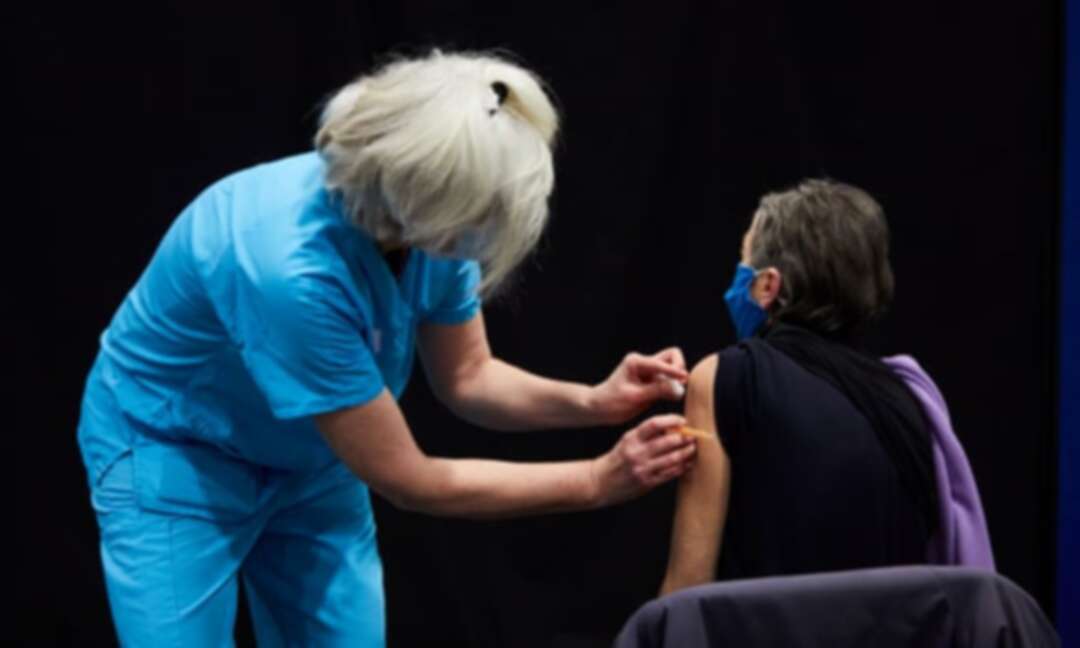-
About 4,000 Covid variants across world, says UK minister

Nadhim Zahawi says Britain is storing mutations so it is better prepared to update vaccines
There are roughly 4,000 variants of Covid-19 around the world, according to the UK vaccines minister, who said the British government was storing the mutations so it was better prepared to update vaccines as needed.
Nadhim Zahawi told Sky News there was a “library” of coronavirus mutations being stored to make sure the UK could respond appropriately.
Concerning variants have been identified in California, South Africa and Brazil, as well as the UK. Zahawi said: “There are about 4,000 variants around the world of Covid now.
“We have the largest genome sequencing industry – we have about 50% of the world’s genome sequencing industry – and we are keeping a library of all the variants so that we are ready to be able to respond, whether in the autumn or beyond, to any challenge the virus may present, and produce the next vaccine so we can always protect the United Kingdom and of course the rest of the world as well.”
He said manufacturers including Pfizer/BioNTech, Moderna and Oxford/AstraZeneca were looking at how they could improve their vaccines to be ready for any variant.
In a separate interview with BBC Breakfast, Zahawi said infection transmission studies among vaccinated care home residents and frontline healthcare workers would provide more information on a roadmap for reopening the economy.
“The phase 1, the top nine
“One is in care homes where Public Health England are testing residents because they are in category one, and one with health frontline workers who are category two of that top nine.
“Those pieces of evidence, coupled with other pieces of evidence from other countries as well, will hopefully give us a very clear roadmap to opening the economy where we see a huge reduction, hopefully, in deaths and hospitalisation.”
When pushed on when the first nine groups in the priority list would have received their vaccine, he said people could “do the maths”.
He told BBC Breakfast: “We will set out our target (for vaccinating groups 5-9) after we have hit our February 15 target. But you can do the maths. We did 600,000 in a single day – the deployment infrastructure that we’ve built can do as many vaccines as we get supply, so the limiting factor will be vaccine supply.
“You can see that in the next 10 or so days, we’ve got to do another almost touching 5 million and so if we keep that rate up we will very quickly go down the list of the top nine.”
Asked whether that meant it would take another 35 days from 15 February to have jabbed all 31 million people in the first nine cohorts, Zahawi replied: “That assumes the supply, so I don’t want to commit to a date without going through it with a very fine-tooth comb with the whole team, because our limiting factor is the supply of vaccines ultimately.
“With any manufacturing process, especially one that is new, there are challenges around that, as we’ve seen in Europe and as we saw in the early days in the UK as well.”
source: Sarah Marsh
Levant
You May Also Like
Popular Posts
Caricature
BENEFIT Sponsors BuildHer...
- April 23, 2025
BENEFIT, the Kingdom’s innovator and leading company in Fintech and electronic financial transactions service, has sponsored the BuildHer CityHack 2025 Hackathon, a two-day event spearheaded by the College of Engineering and Technology at the Royal University for Women (RUW).
Aimed at secondary school students, the event brought together a distinguished group of academic professionals and technology experts to mentor and inspire young participants.
More than 100 high school students from across the Kingdom of Bahrain took part in the hackathon, which featured an intensive programme of training workshops and hands-on sessions. These activities were tailored to enhance participants’ critical thinking, collaborative problem-solving, and team-building capabilities, while also encouraging the development of practical and sustainable solutions to contemporary challenges using modern technological tools.
BENEFIT’s Chief Executive Mr. Abdulwahed AlJanahi, commented: “Our support for this educational hackathon reflects our long-term strategic vision to nurture the talents of emerging national youth and empower the next generation of accomplished female leaders in technology. By fostering creativity and innovation, we aim to contribute meaningfully to Bahrain’s comprehensive development goals and align with the aspirations outlined in the Kingdom’s Vision 2030—an ambition in which BENEFIT plays a central role.”
Professor Riyadh Yousif Hamzah, President of the Royal University for Women, commented: “This initiative reflects our commitment to advancing women in STEM fields. We're cultivating a generation of creative, solution-driven female leaders who will drive national development. Our partnership with BENEFIT exemplifies the powerful synergy between academia and private sector in supporting educational innovation.”
Hanan Abdulla Hasan, Senior Manager, PR & Communication at BENEFIT, said: “We are honoured to collaborate with RUW in supporting this remarkable technology-focused event. It highlights our commitment to social responsibility, and our ongoing efforts to enhance the digital and innovation capabilities of young Bahraini women and foster their ability to harness technological tools in the service of a smarter, more sustainable future.”
For his part, Dr. Humam ElAgha, Acting Dean of the College of Engineering and Technology at the University, said: “BuildHer CityHack 2025 embodies our hands-on approach to education. By tackling real-world problems through creative thinking and sustainable solutions, we're preparing women to thrive in the knowledge economy – a cornerstone of the University's vision.”
opinion
Report
ads
Newsletter
Subscribe to our mailing list to get the new updates!






















